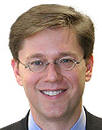FCC Extends E911 Location Tracking Rules
to Interconnected VOIP
May 31, 2007. The Federal Communications Commission (FCC) adopted, but did not release, a Notice of Proposed Rulemaking (NPRM), that contains numerous tentative conclusions. It expands E911 location obligations to interconnected voice over internet protocol (VOIP) services. It also sets standards for location accuracy.
The FCC issued only a brief release [PDF] describing this item, and the five Commissioners wrote statements. The five Commissioners uniformly advocated this item for its promotion of public safety operations.
The expanded scope, and increased accuracy, of location determination capabilities in communications and information technology devices will also promote location based advertising, location based social networking, aggregation and incorporation of location data into electronic databases, and government surveillance.
The FCC's release states that the FCC tentatively concludes that "Providers of interconnected VoIP services that can be used at more than one location must employ an automatic location technology that meets the same accuracy standards which apply to providers of commercial mobile radio services (CMRS)."
The release also states that the FCC tentatively concludes that "wireless carriers would be required to meet Phase II location accuracy and reliability standards under Section 20.18(h) at the service area level of PSAPs." The release adds that the FCC seeks comments on "whether to defer enforcement of Section 20.18(h) to allow time for wireless carriers to come into compliance with this standard".
The release also states that the FCC tentatively concludes that "A single, technology-neutral location accuracy requirement for wireless E911 service should be used, rather than the separate accuracy requirements for network-based and handset-based location technologies that are currently in place".
The release also states that the FCC tentatively concludes that "Wireless carriers should comply with a mandatory schedule for accuracy testing and automatically provide accuracy data to PSAPs".
 FCC Chairman
Kevin Martin (at right) wrote in his
statement
[PDF] that "We have long known that the two location technologies
used by carriers -- handset-based GPS and network-based triangulation -- each
have limitations. Network-based technologies are not as effective in rural areas
often due to lack of sufficient towers. Handset-based technologies are not as
effective in urban areas, as signals often have difficulty penetrating
buildings. In this respect, a network-based technology that works well in
Manhattan may have little or no ability to locate an individual in other parts
of the state. As technology has developed, however, so must our standards and
expectations. The Notice of Proposed Rulemaking recognizes that the different
technologies chosen by carriers to date have limitations, and seeks comment on
ways to remedy these shortcomings."
FCC Chairman
Kevin Martin (at right) wrote in his
statement
[PDF] that "We have long known that the two location technologies
used by carriers -- handset-based GPS and network-based triangulation -- each
have limitations. Network-based technologies are not as effective in rural areas
often due to lack of sufficient towers. Handset-based technologies are not as
effective in urban areas, as signals often have difficulty penetrating
buildings. In this respect, a network-based technology that works well in
Manhattan may have little or no ability to locate an individual in other parts
of the state. As technology has developed, however, so must our standards and
expectations. The Notice of Proposed Rulemaking recognizes that the different
technologies chosen by carriers to date have limitations, and seeks comment on
ways to remedy these shortcomings."
 Commissioner
Jonathan Adelstein (at
left) concurred in, but criticized, this item. He wrote in his
statement [PDF] that "I am concerned that this proceeding, while
well-intentioned, rushes to judgment by issuing a series of tentative
conclusions without even beginning to conduct the necessary due diligence. I am
troubled that we are considering imposing a new compliance requirement that we
know some carriers will be unable to meet in certain circumstances. To make
matters worse, we are bifurcating the proceeding with the goal of setting a new
accuracy compliance standard well in advance of making a determination of how we
can actually achieve improved location accuracy. This is premature from both
legal and policy standpoints."
Commissioner
Jonathan Adelstein (at
left) concurred in, but criticized, this item. He wrote in his
statement [PDF] that "I am concerned that this proceeding, while
well-intentioned, rushes to judgment by issuing a series of tentative
conclusions without even beginning to conduct the necessary due diligence. I am
troubled that we are considering imposing a new compliance requirement that we
know some carriers will be unable to meet in certain circumstances. To make
matters worse, we are bifurcating the proceeding with the goal of setting a new
accuracy compliance standard well in advance of making a determination of how we
can actually achieve improved location accuracy. This is premature from both
legal and policy standpoints."
He concluded that "It is questionable that the best way is for the Commission to set a utopian standard before it even considers the full record. After much consideration, I think we need a more collaborative approach. I am unable to fully support our item because I am concerned the debate over compliance will create an unnecessary sideshow to the main event of improving E911 services."
See also, statement by Commissioner Robert McDowell, statement by Commissioner Michael Copps, and statement by Commissioner Deborah Tate.
The FCC's release, and all five Commissioners' statements, discuss public safety uses of location information. None address other uses of government mandated precise location tracking capability, such as location based advertising, location based social networking, aggregation of location data, and government surveillance. Nor do they discuss the impact of these other uses on individual privacy, personal safety, and 4th Amendment rights.
Although, Adelstein did ask rhetorically in his written statement, "should we be taking a closer look at how privacy interests intersect with innovation in the E911 space?"
This item is FCC 07-108 in CC Docket No. 94-102, WC Docket No. 05-196, and
the new PS Docket No. 07-114.